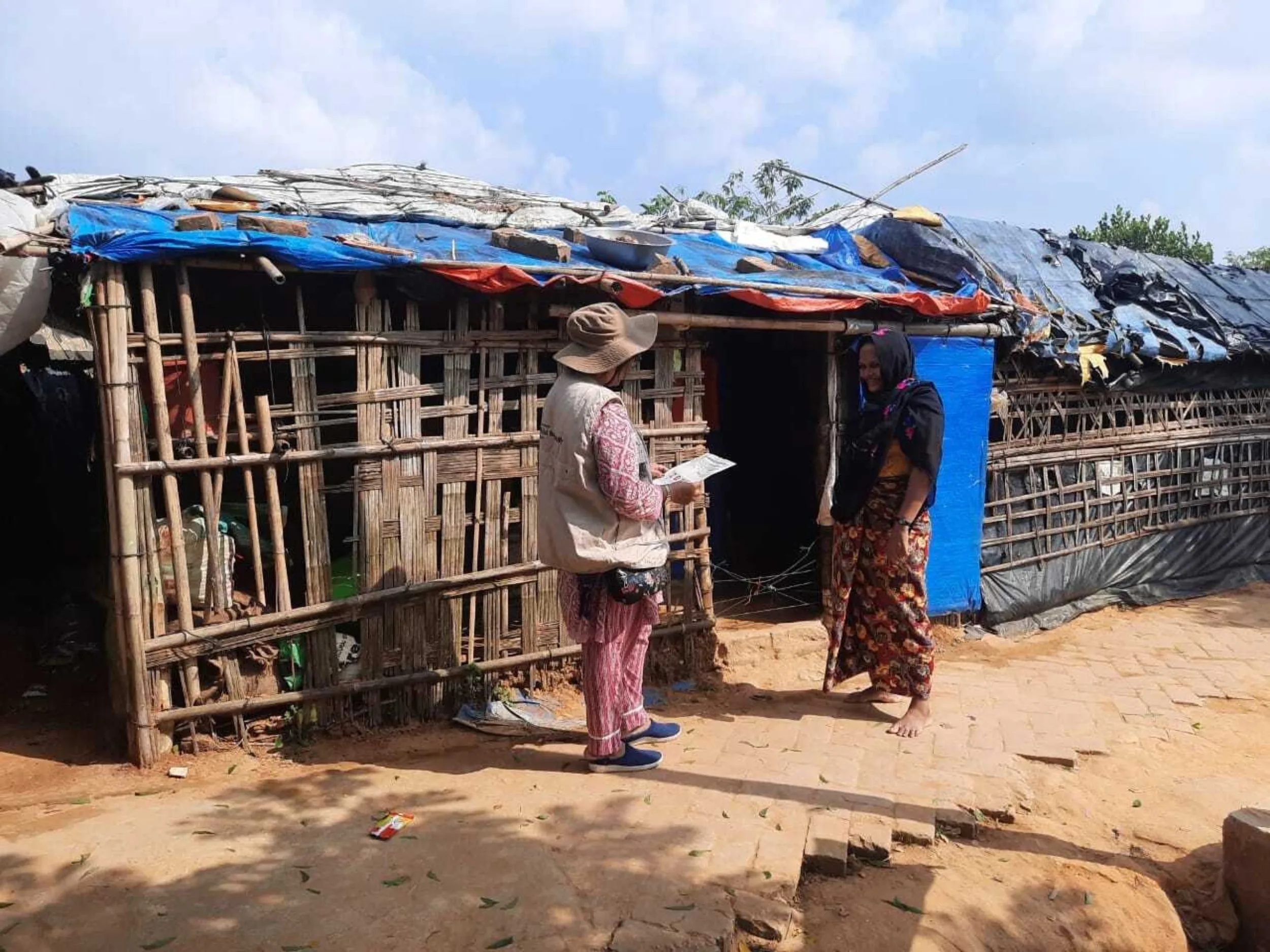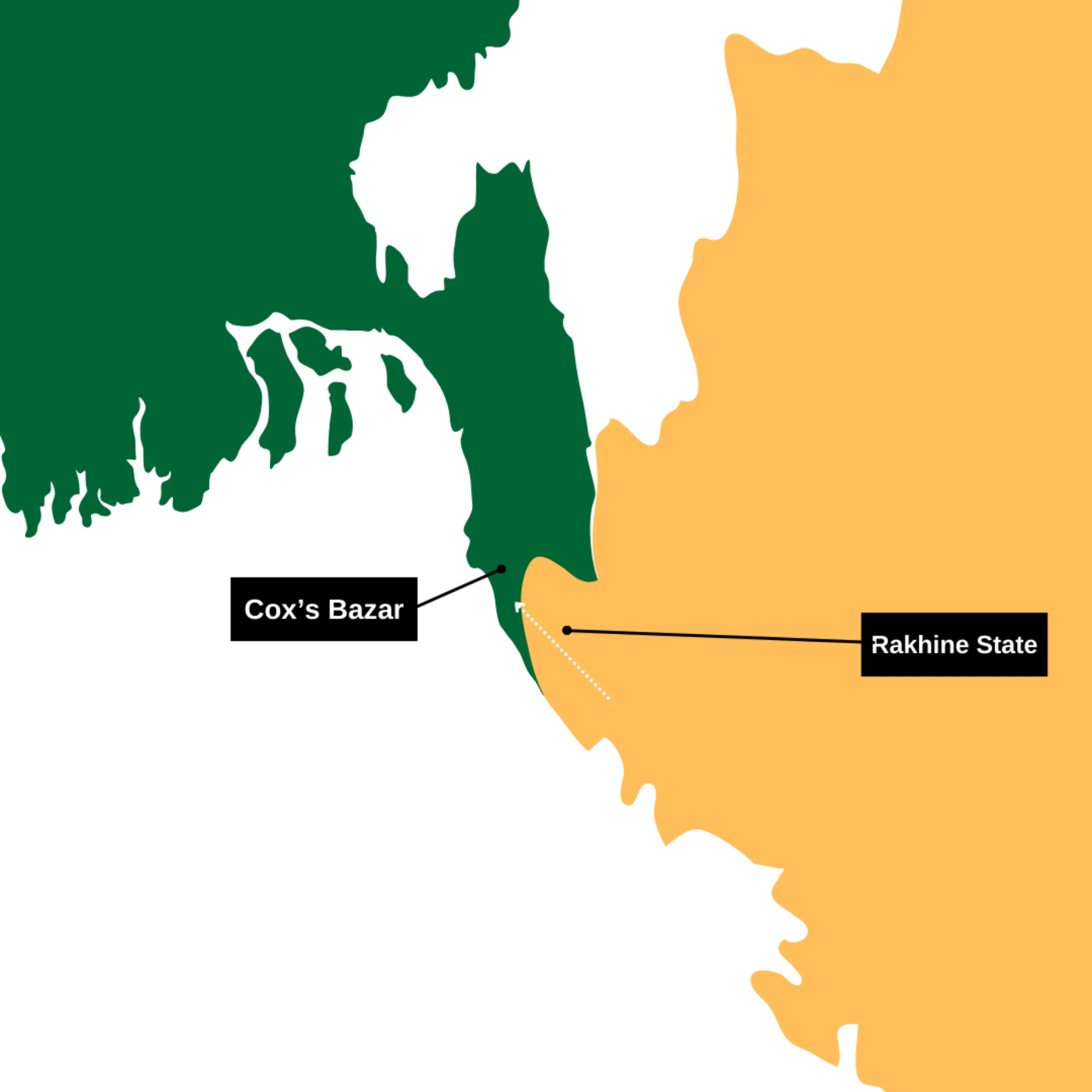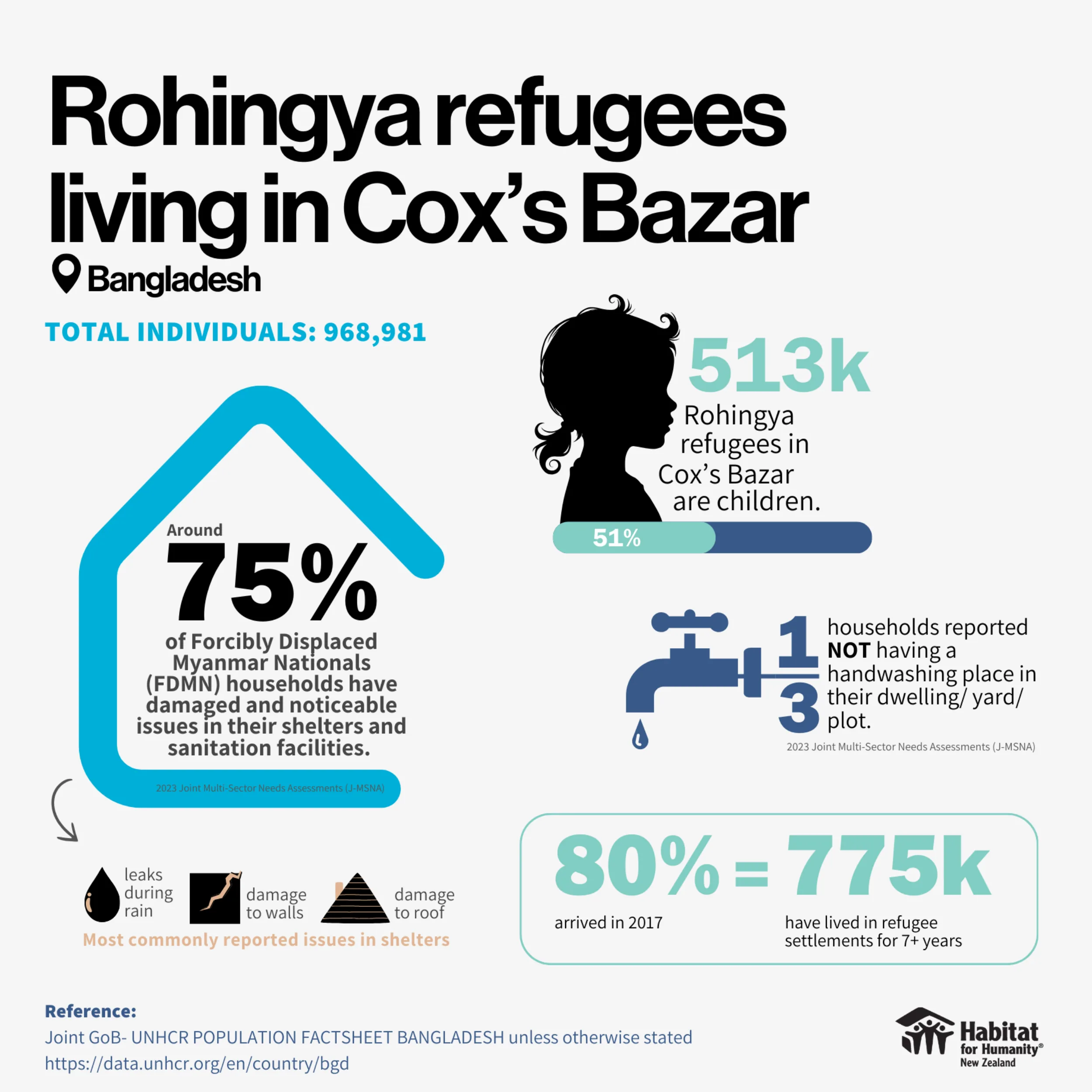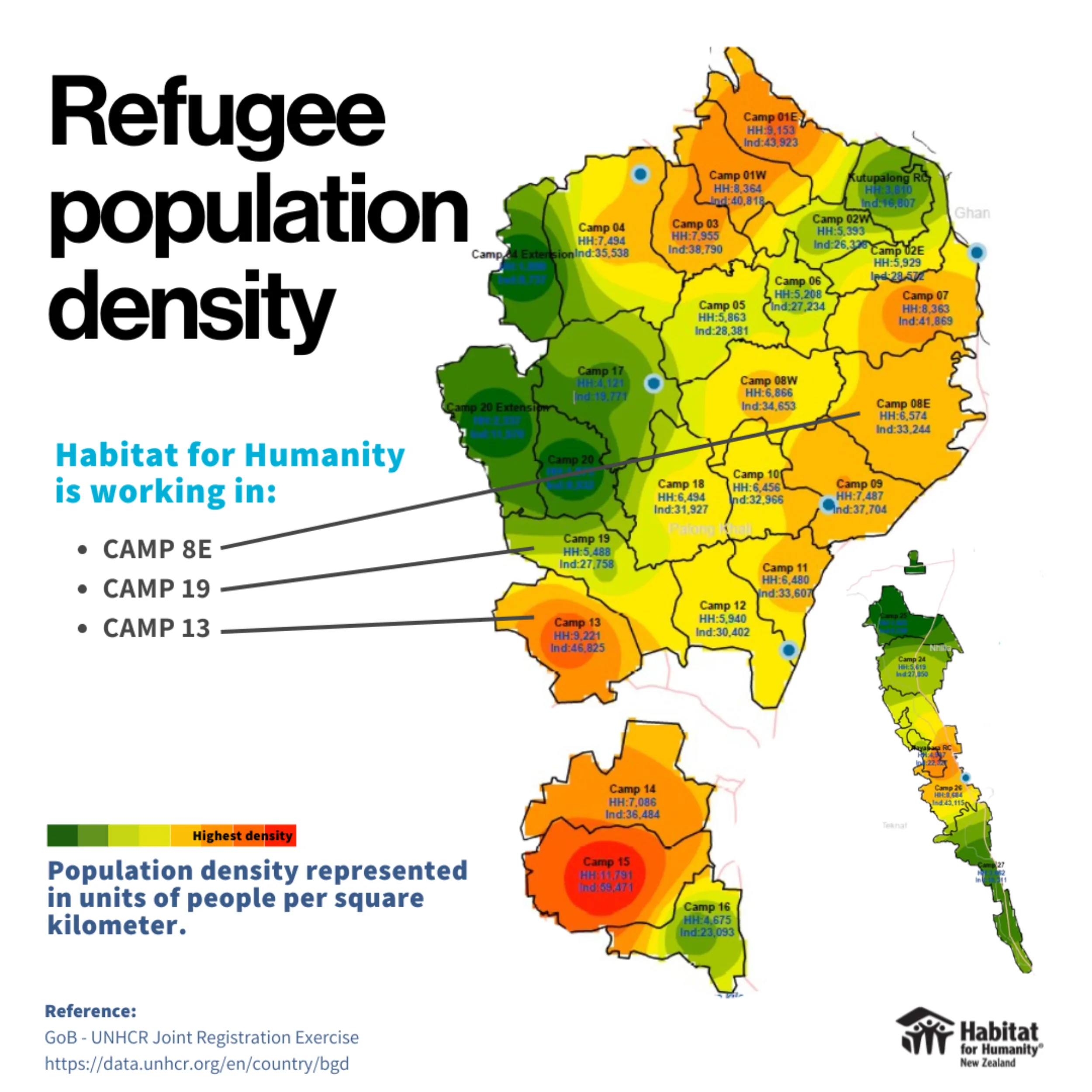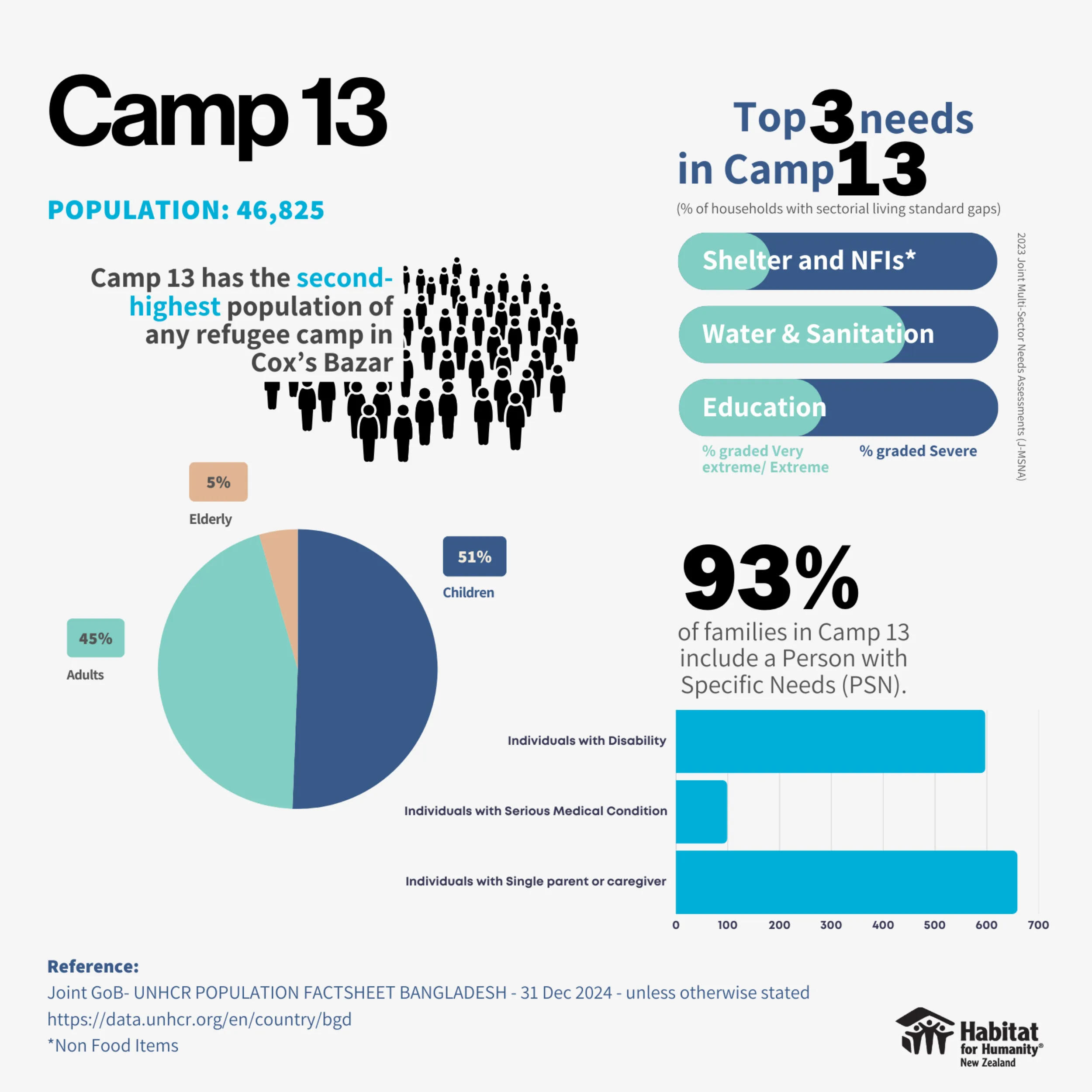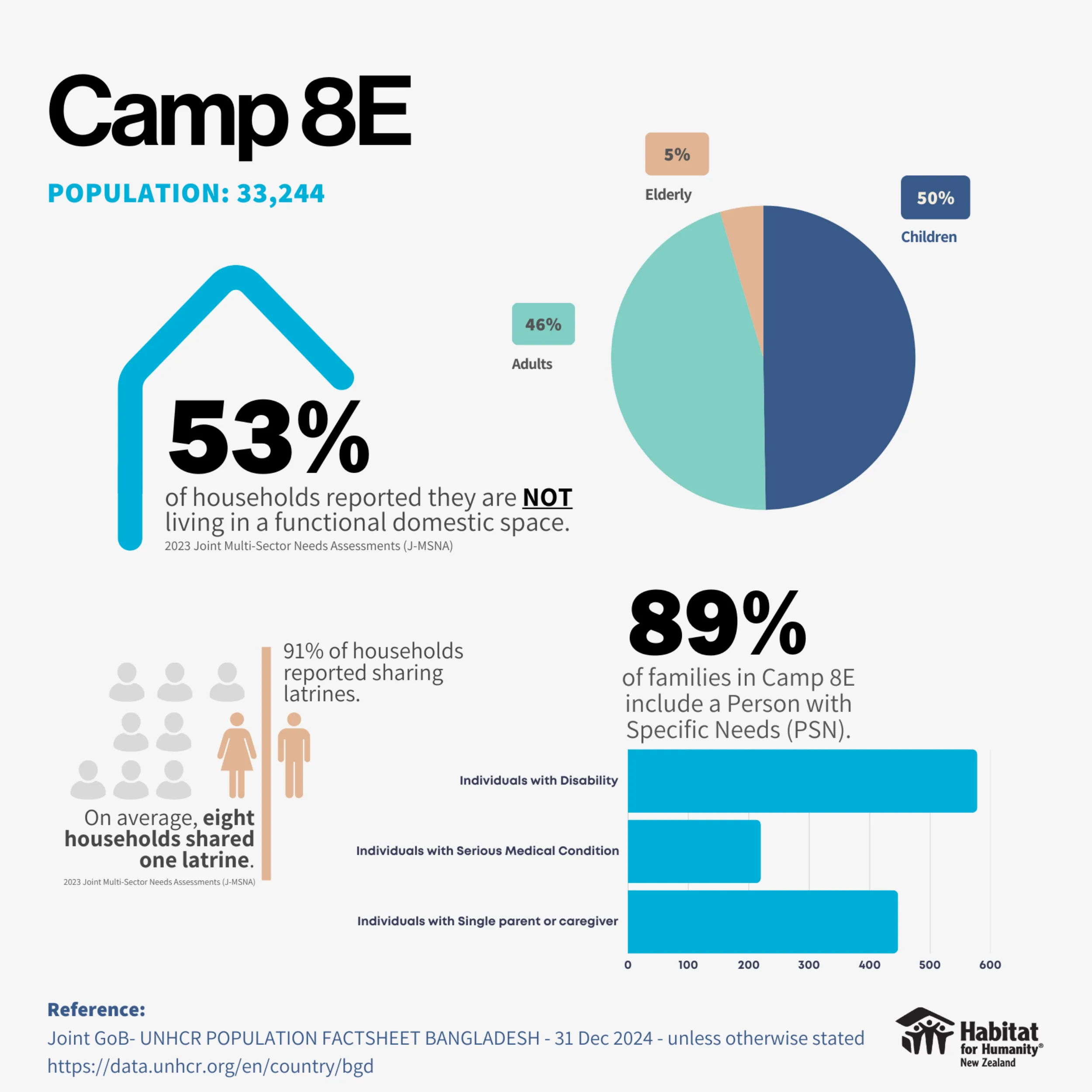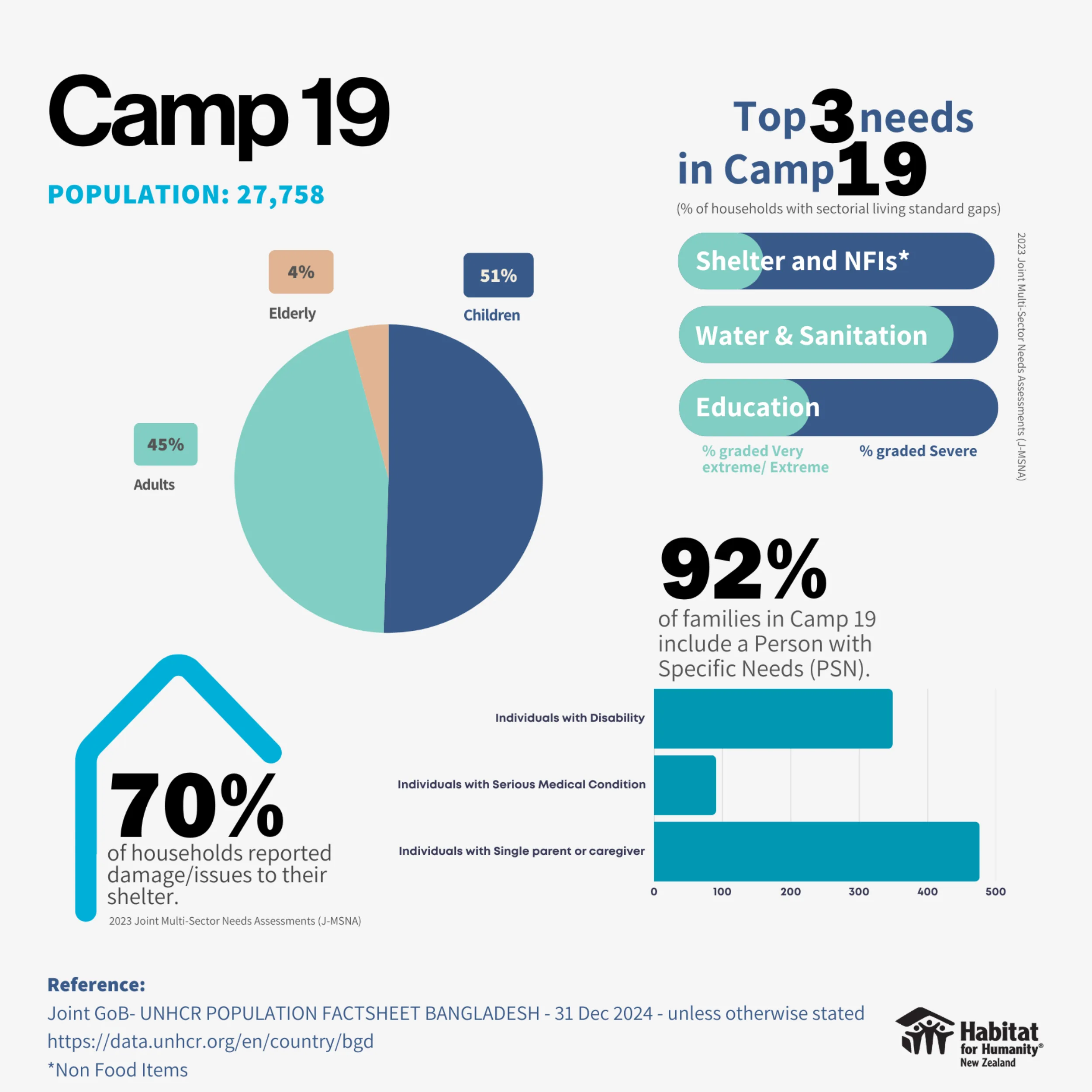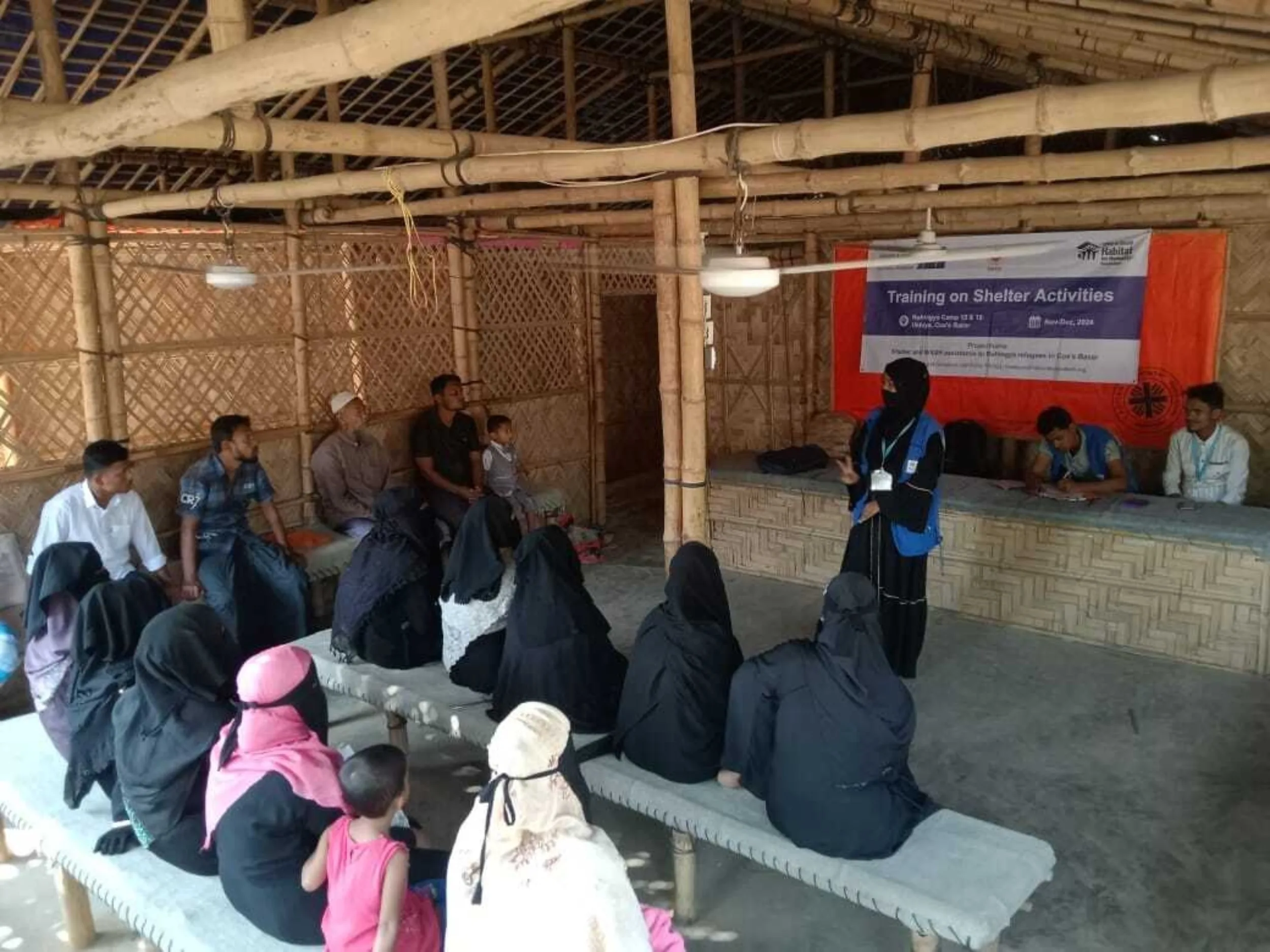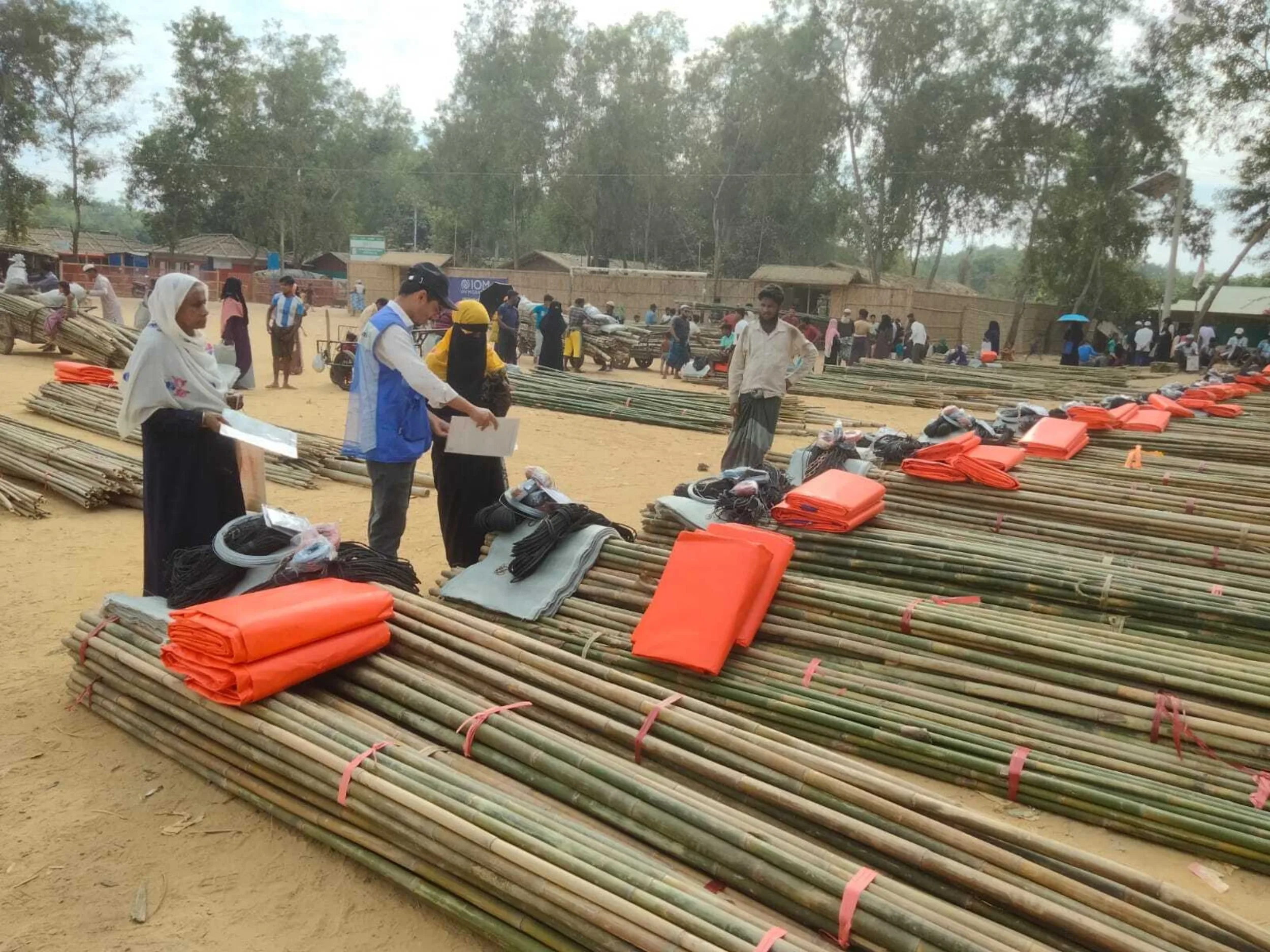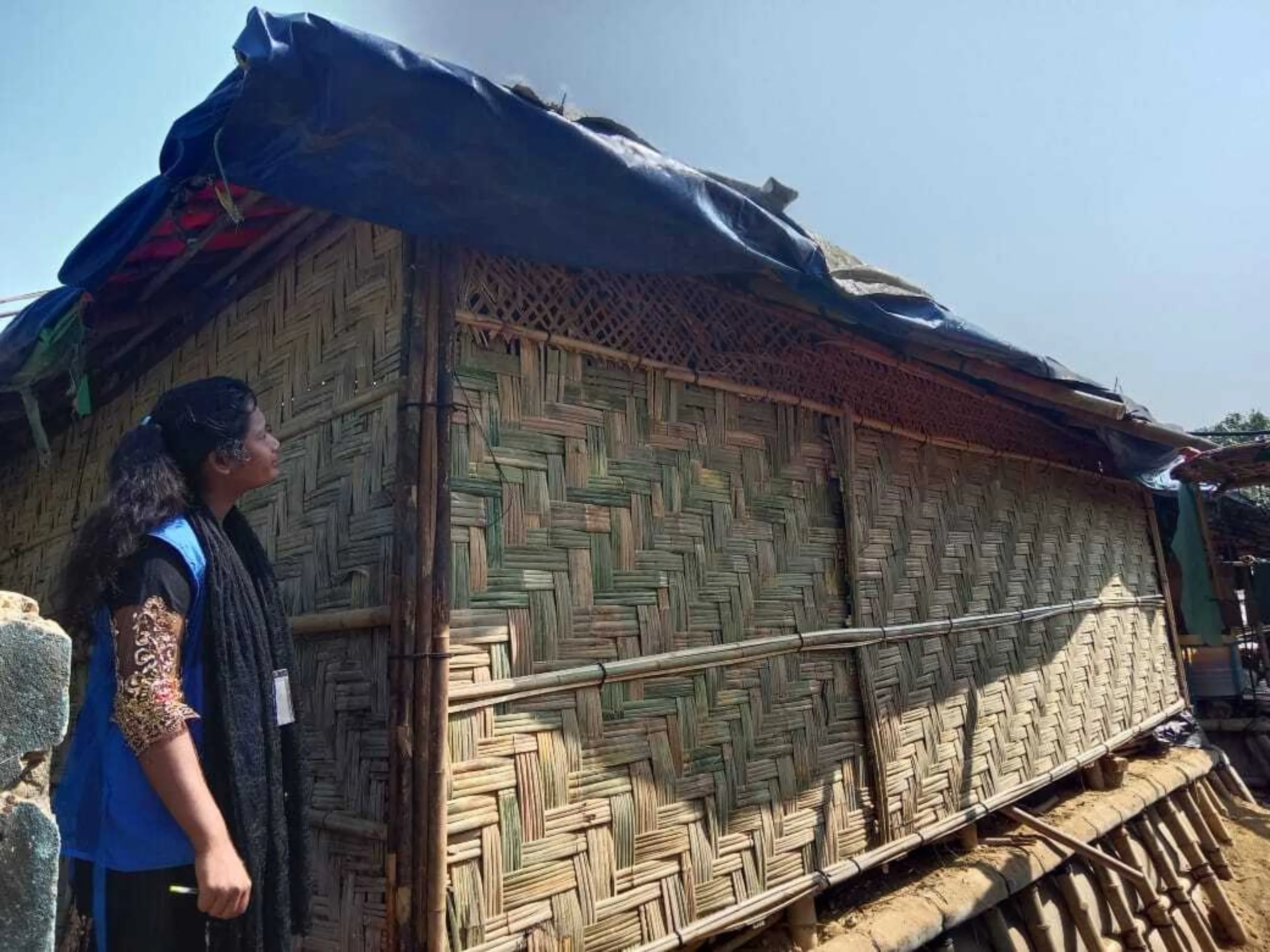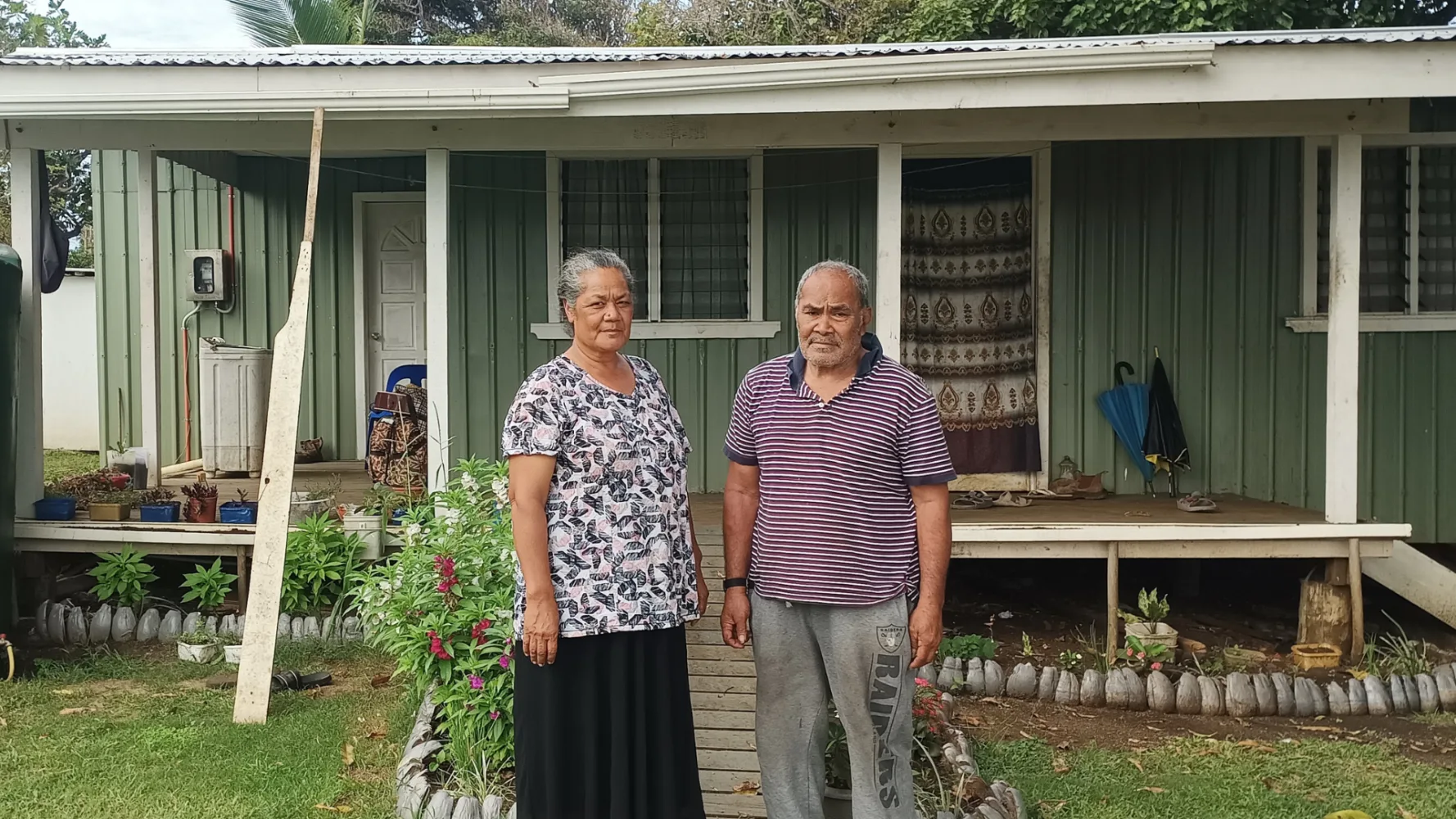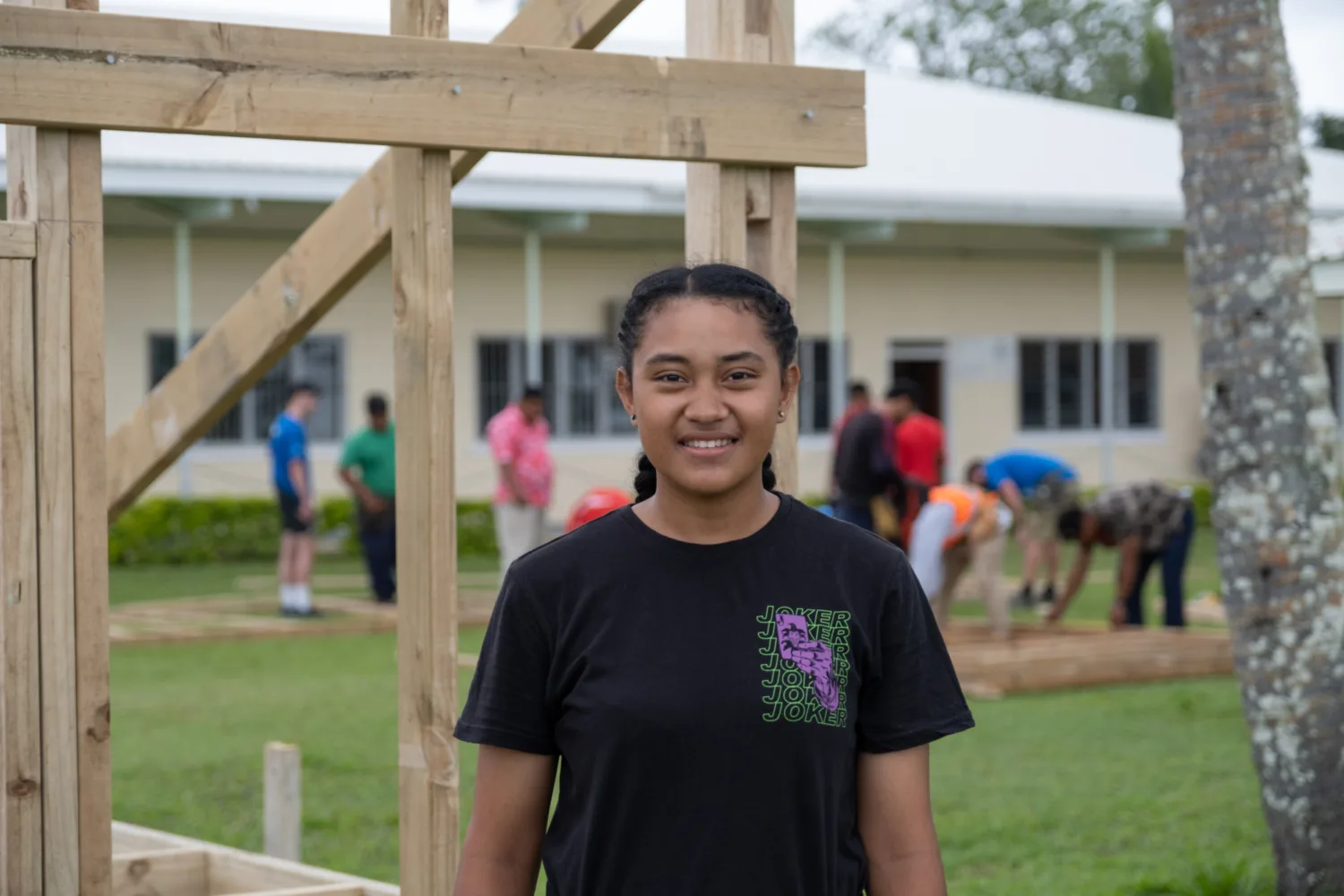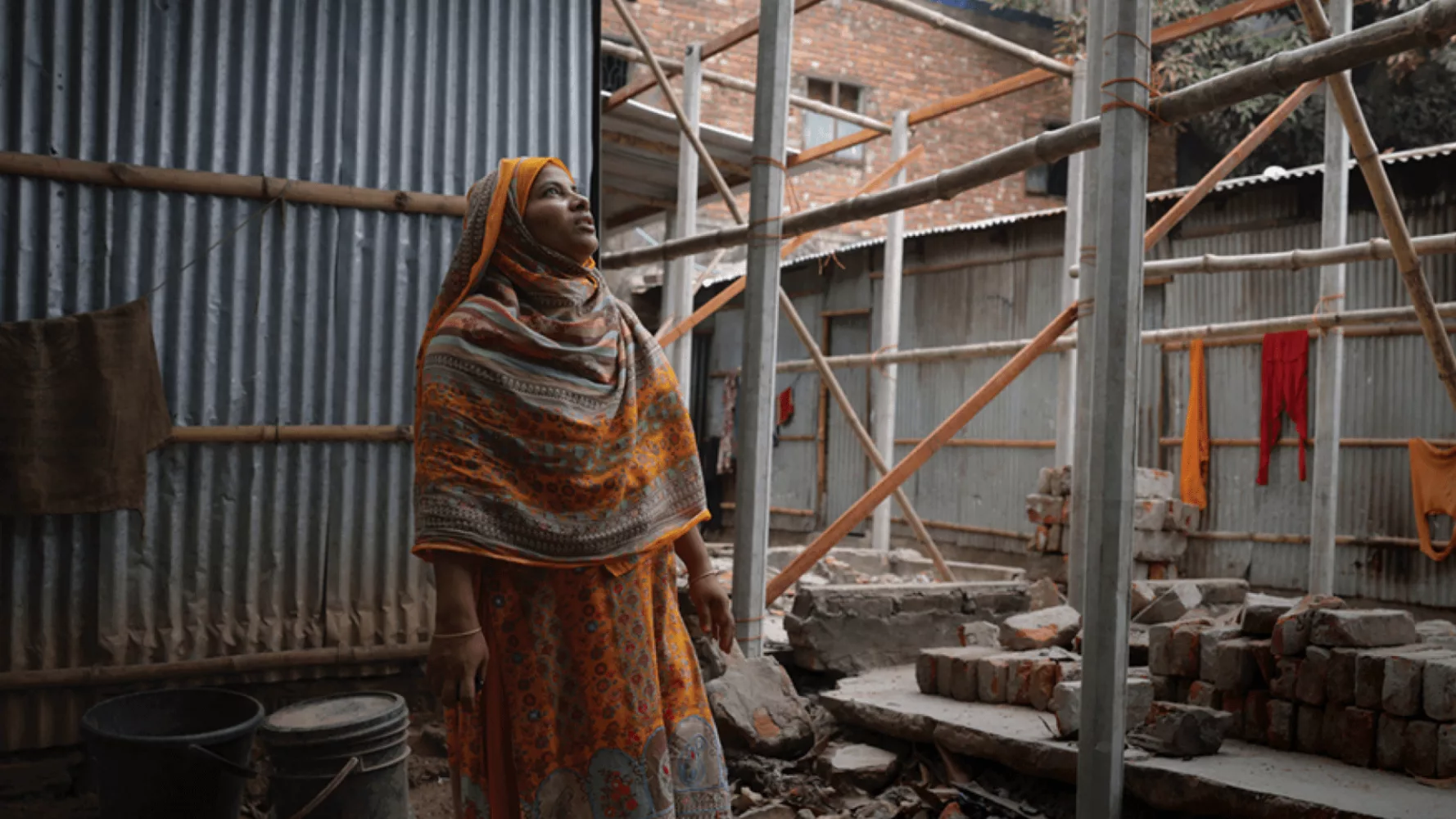The Rohingya people have endured decades of persecution and violence, culminating in a brutal military crackdown in 2017. Forced to flee their homes, nearly a million Rohingya sought refuge in Bangladesh, where they now live in sprawling camps in Cox’s Bazar. In 2025, life in the Rohingya camps remains challenging, with refugees facing overcrowding, inadequate shelter, and limited access to clean water and sanitation.
In response to this ongoing crisis, Habitat for Humanity Bangladesh is working in Rohingya camps to address critical needs for shelter and Water, Sanitation, and Hygiene (WASH) facilities for both displaced people and surrounding communities in Bangladesh.
These efforts aim to improve living conditions while empowering communities with tools and knowledge to maintain safer, healthier environments in the future.
This work is not just about infrastructure—it’s about restoring hope and dignity to people who have lost so much by focusing on both addressing immediate needs and long-term resilience.
The Rohingya are an ethnic group originating from Myanmar's Rakhine State. Myanmar (previously Burma) is a majority-Buddhist state, but the Rohingya people are primarily Muslim, though a small number are Hindu. Despite their deep ties to the area, the Rohingya have faced widespread discrimination and exclusion.
After the 1982 Citizenship Law passed in Myanmar, it excluded Rohingya from being officially recognised as one of the country’s ethnic groups, which has left them stateless for decades.
This lack of citizenship means they are denied basic rights like access to education, healthcare, and freedom of movement. Today, the Rohingya are considered illegal immigrants by Myanmar, and are not recognized under the law.
The Rohingya have endured decades of systemic discrimination and violence in Myanmar, culminating in a brutal military crackdown of “clearance operations” in August 2017. Brutal raids, beatings, and whole villages burned; the operations allegedly led to the deaths of thousands of innocent Rohingya.
The United Nations and various human rights organizations have characterised these actions as ethnic cleansing and genocide.
As a result of the violence, over 700,000 Rohingya fled to neighboring Bangladesh seeking safety and shelter in the years surrounding the conflict.
As of December 2024, the total number of Rohingya refugees in Bangladesh has increased to just over one million, with more than 96% of refugees residing in the Cox's Bazar district.
This mass displacement has left only a small fraction of the Rohingya population remaining in Myanmar, where they continue to face severe restrictions and threats to their safety.
Rohingya refugees are living in 33 camps in Cox’s Bazar on the coast of Bangladesh, which together make up the world’s largest refugee settlement.
The camps are overcrowded, with hundreds of thousands of people living in makeshift shelters. Better access to clean water, proper sanitation, and healthcare is still a work in progress for many camps, making daily life difficult.
Although people may think of refugee camps as short-term situations until displaced people move on, the reality is quite different. In fact, in December 2024 it was reported that 80% of current refugees in Cox’s Bazar arrived in 2017, meaning hundreds of thousands of women, children, and families have now lived in a camp for almost eight years, according to the Population Fact Sheet published by the Joint Government of Bangladesh (GoB) and the United Nations Refugee Agency (UNHCR).
With this in mind, support is needed for homes and families who aren’t simply passing through. Complicated geopolitical circumstances are leaving people in camps for years and the reality of living in indecent homes is serious; as recently as December 2023, it was reported that 73% of households in Camps 13, 19, and 8E were living with shelters ranging from “degrading living conditions” to “total collapse of living standards, with potentially immediately life threatening outcomes”.
Organisations like Habitat are working in the camps to repair and improve shelters, water access, sanitation, and overall living conditions for Rohingya in Cox’s Bazar.
Habitat is working to address inadequate shelter in three Rohingya refugee camps in Cox’s Bazar, including Camp 13, the second most populated camp in Cox’s Bazar with a population of just over 46,800.
For families living here, they face harsh conditions such as overcrowding, harsh weather, and limited access to basic necessities. Many of the shelters are damaged, leaving families exposed to the threat of monsoon season, landslides, heavy rain, and fire outbreaks.
Since mid-2024, Habitat has repaired 300 shelters and restored 200 tubewells (a source of drinking water) and sanitation facilities — lifelines for clean water and hygiene. In some camps, anywhere from five to nine households can share one latrine, meaning repairs to one sanitation facility can improve the living conditions of many people.
Repairs include fixing critical roof leaks, reinforcing walls, and adding bracing to protect against extreme weather. The assessments also identify high priority groups to support first, such as women-headed homes and people living with a disability, who often face additional challenges in maintaining safe homes for their families.
The programme also goes beyond patching up structures; bundles of shelter material are being distributed, and refugees are learning how to maintain their homes through group training sessions. Hygiene training takes place after upgrading facilities, equipping families with knowledge to maintain clean and healthy environments. Local workers are also being trained, ensuring these skills stay within the community.
If you wish to make a donation via credit card over the phone, please phone us on (09) 579 4111
You can donate via internet banking:
Habitat for Humanity New Zealand
ANZ
06-0177-0127197-00
If you wish your donation to go to a specific appeal please include in the payment Reference
If you make a donation on our website your receipt will be emailed to you automatically.
If you choose to donate via internet banking, you will receive your receipt via email 1-2 days after you make your donation. If no email address is given, your receipt will be posted to the address given.
Donations over $5.00 are tax deductible. You can submit your receipt to IRD website, and they will process your tax rebate.
Habitat for Humanity New Zealand has partnered with Supergenerous making it easier for your generosity to support our mission.
All your charitable donations are tax deductible. By claiming your end-of-year tax credit and gifting it back to Habitat, you’re making your original donation to us go even further.
Supergenerous is authorised by the IRD to claim your tax credit on your behalf, and donate back to your chosen charity.
Yes, you can give regular monthly donations to your chose Habitat for Humanity appeal. Just select 'give monthly' when processing your donation payment.
You can change, cancel or suspend your monthly donation at any time. Please email us at info@habitat.org.nz, or phone us on (09) 579 4111.
Your credit card will be charged once you submit your first monthly gift, and future donations will be made on that same day going forward. If you wish to change your payment date to better suit your pay cycle, please get in touch via information@habitat.org.nz, or phone us on (09) 579 4111 and we can easily action that for you.
Yes, you will receive an annual tax receipt at the close of the financial year, recording all donations.
Yes, if you wish to donate via internet banking, our details are
Habitat for Humanity New Zealand
ANZ
06-0177-0127197-00
If you wish your donation to go to a specific appeal, please enter into your Reference
One tax receipt recording all your donations for the financial year, making it easy to claim your tax rebate.
With small payments spread out month to month, becoming a HopeBuilder can suit any budget. Even a small amount can have a huge impact.
Your donation occurs automatically each month, and you can pause, downgrade, upgrade, or cancel at any time.
Your regular support ensures long-term impact, all year long.
Please fill in the below enquiry form and we will be in touch soon.
Please fill in the below enquiry form with your details and we will be in touch within 2 working days.
